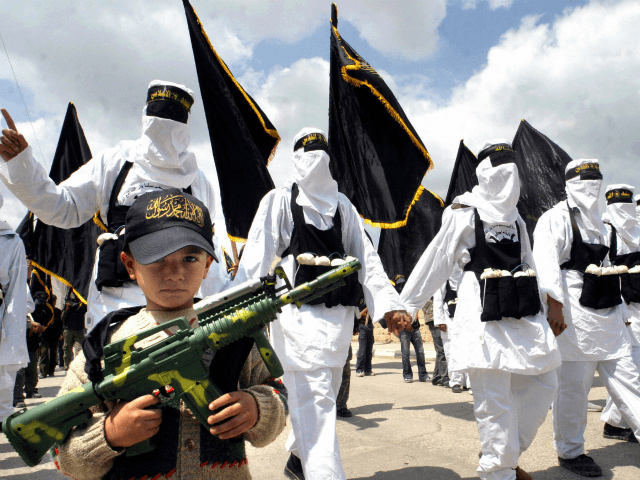It is always nice to hire people with expertise for delicate work, but Ezra Levant at the Rebel Media thinks Canada’s Center for Prevention of Radicalization Leading to Violence (CPRLV) went a bit overboard by hiring two accused terrorists as “anti-radicalism consultants.”
As Levant points out, while Sabrine Djermane and El Mahdi Jamali were very recently acquitted of terrorism charges, Jamali was found guilty of possessing explosives, and the Crown is appealing Djermane’s acquittal on a similar charge, so there would seem to be formidable legal obstacles against either of them working as an effective consultant for a program intended to reduce radicalism.
“The two signed peace bonds that were issued separately from the criminal charges, and they continue to be bound by several conditions outlined in those bonds,” CBC News reported on Tuesday. “Those conditions include a prohibition against using social media, a requirement to check in weekly with the [Royal Canadian Mounted Police] RCMP and a requirement to avoid Montreal’s Assahaba mosque, linked to the controversial imam Adil Charkaoui.”
It would be tricky for the Center for the Prevention of Radicalization Leading to Violence to send this couple on a radicalism prevention mission into the Assahaba mosque, which was named by another accused terrorist as a prime recruiting ground for young jihadis.
CPRLV Director Herman Deparice-Okomba told CBC News that Djermane and Jamali, who were 19 years old and 18 years old respectively when they were arrested in 2015, want to “give back to the community” by helping to develop a “guide to how to take care of people who have been charged with terror offenses.”
Taking care of people who have actually been charged with terrorism is a tad later in the radicalization process than one would hope for an anti-radicalization program to intervene. Deparice-Okomba felt that Djermane and Jamali’s expertise would help the CPRLV to “understand the process of radicalization and indoctrination in Quebec” and allow it to “develop good prevention strategies.”
He stipulated that the couple might have “radical ideas” but are “not violent,” and said they would be paid an allowance for 12 weeks while they work on the guidebook. According to the Star, the stipend is $294 per week, “intended to cover the costs of traveling to and from the center and offsetting the wages from other job offers the couple turned down to work with the radicalization program.”
Deparice-Okomba is quoted in that article saying the couple did not ask for compensation, but the Center was “morally” uncomfortable with having them work for free.
This was problematic in Levant’s opinion because the Center for the Prevention of Radicalization Leading to Violence receives $1.2 million in taxpayer funding from the Ministry of Public Security in Quebec, and another $700,000 from the city of Montreal.
“They’re only 22 and 21 years old. Life is not over for them. You have to give them a chance. Their chance is to show the community that they’ve learned from the past,” Deparice-Okomba argued.
Levant disputed that argument as well, saying the “not guilty” pleas filed by the couple indicate they have not “acknowledged their evil and repented.”
The Star describes the evidence for those allegations of unrepentant evil:
In April 2015, the Montreal couple were arrested and accused of trying to leave Canada to join a terrorist group and for possession of an explosive substance.
They were reported to police by concerned members of Djermane’s family.
A search of the Montreal apartment the couple shared revealed a handwritten recipe for a homemade bomb that Jamali had copied from the online al-Qaeda propaganda magazine, Inspire.
More specifically, the pair were accused of attempting to leave Canada so they could join the Islamic State in Syria. The strongest accusations against Djermane came from her sister Raina, who recanted her testimony a year after the couple was arrested, and was herself charged with obstruction of justice. Sabrine Djermane’s other sister Faitha was the one who actually launched the investigation by claiming she heard radical statements, but the jury never heard the testimony of either sister.
According to Raina’s original statements to investigators, her sister Sabrine complained about heavy police penetration of Canadian mosques, said the “true words of the prophet Mohammed” are kept hidden in Canada, and at one point endorsed the notion of killing people to “protect your Muslim brothers.” Raina also said Sabrine indicated she was leaving for Syria and did not expect to return.
Former Canadian Security Intelligence Service agent Phil Gurski saw both sides of the controversy in an interview with the Star, arguing that Djermane and Jermali need to be kept involved in “positive and constructive activity,” and might be more effective at reaching out to young people in danger of radicalization than “white, middle-aged spies, police officers, or psychologists.”
However, he also touched on Levant’s point about repentance by noting that the couple is better described as “disengaged” rather than “de-radicalized,” because they are not actively seeking to “join the Islamic State or plan a terrorist attack or whatever” after two years in detention, but they also do not seem to have conclusively denounced their Islamist ideology.
Ironically, before she withdrew from the trial, Faitha Djermane told investigators she was inspired to report her sister’s radical leanings to the police by attending precisely the sort of anti-radicalization conference that the Center for Prevention of Radicalization Leading to Violence will now employ Sabrine Djermane to write a guidebook for.

COMMENTS
Please let us know if you're having issues with commenting.